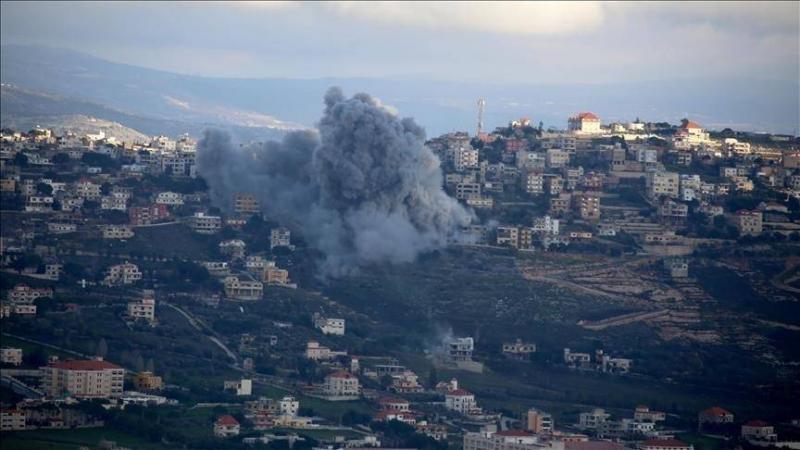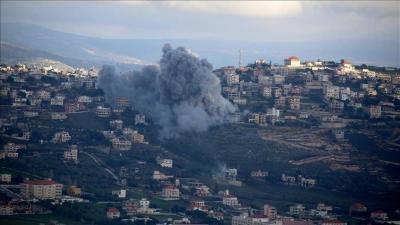The Israeli website "Mako" published a new report stating that the assassinations conducted by the Israeli army against cadres and leaders of Hezbollah seriously harm its ability to act against Israel. The report discussed the latest assassination operation carried out by Israel in Lebanon last Tuesday, targeting Hezbollah leaders Mahmoud Fadlallah and Ismail Baz. In this context, a military official from the Israeli army's Northern Command stated that the targets made by Israel could reduce Hezbollah's ability to fight that may occur if Israel launches any ground attack against Lebanon.
The report notes that despite this, the Israeli army admits that the wave of assassinations has not succeeded in changing the situation in the north along the border with Lebanon, where tens of thousands have been evacuated, and it is still unclear when they will return to their homes. The military official who spoke through "Mako" considered that the assassinations have also influenced Hezbollah's tactical capabilities, partly because the leaders who were assassinated had gained operational experience in the Syrian war. Additionally, the official confirmed that "these assassinations compel other party leaders to invest their efforts in securing their personal protection at the expense of offensive operations," explaining that the eliminations also undermine the party's operational capabilities to attack Israel and to operate against the Israeli army.
The official explained that the impact of these assassinations can be seen in Hezbollah's activity along the fence, as offensive pressure on the party's fighters and leaders has led to the thwarting of numerous operations that Hezbollah planned to execute, such as attacks on the fence against Israeli army forces. The official revealed that "the leaders who were eliminated were immediately replaced," noting that "the capabilities of their replacements and the time it takes them to adapt to new positions has obstructed Hezbollah's abilities." He stated, "These assassinations have also had significance at a broader level, following the assassination of senior Iranian officials and Hezbollah affiliates in Damascus. All of this shows that Israel is undeterred and can continue its assassination policy despite the threats it receives from the Iranians and Hezbollah."
Meanwhile, Israeli military correspondents discussed the reality of the front with Lebanon, specifically after the Hezbollah targeting incident last Wednesday, when the Arab al-Aramsha area at the Lebanon-Israel border was attacked using guided missiles and explosive drones. In this context, the military correspondent for the Israeli website "Walla" indicated that "Hezbollah continues to attack Israel using precise drones, requesting that the Israeli Air Force 'be a little modest.'" While Israeli reports indicated that the Israeli army imposed a ban on gatherings from 0 to 4 kilometers from the Lebanese border in unprotected areas, the military correspondent for the Israeli newspaper "Makor Rishon" stated that "what appears so far is that there is no effect of the assassinations carried out by the Israeli army against Hezbollah on the ground."
For its part, the Israeli newspaper "Yedioth Ahronoth" reported that programming a drone like the one that struck Arab al-Aramsha requires technical capabilities and skilled operators. The newspaper discussed "the improvement in the performance of the weapons used by Hezbollah, evidenced by three drones that exploded in the Galilee, two of which were yesterday near Beit Hillel and one today in Arab al-Aramsha, resulting in injuries to about 20 Israelis." It should be noted that "Yedioth Ahronoth" published another report with the names of senior field leaders of Hezbollah who were assassinated by Israel in airstrikes in Lebanon since the outbreak of hostilities. The report stated that the attacks carried out by the Israeli army are often against vehicles, demonstrating its deep knowledge of Hezbollah's organizational structure and distribution of roles in the field.
The report mentioned a number of names alleged to be Hezbollah leaders who the Israeli forces managed to eliminate in airstrikes, including: Ismail Yusuf Baz, commander of Hezbollah's coastal sector; Mohammad Hussein Mustafa Shihouri, commander of the rockets and projectiles unit in the western region of the Radwan force; Ali Ahmad Hussein, commander of the Hajir area of the Radwan force in Hezbollah; Ali Abdul Hassan Naeem, deputy commander of the rockets and projectiles unit in Hezbollah; Ali Mohammad al-Dabbas, a central commander in the Radwan force; Hassan Mahmoud Saleh, attack commander in the Mount Dov area; Mohammad Alawiya, commander of the Maroun al-Ras area in Hezbollah; Hassan Hussein Salami, a leader in the Nasir unit affiliated with Hezbollah; Wissam al-Tawil, commander of the Radwan force affiliated with Hezbollah; Ali Hussein Barji, commander of the southern Lebanon area of Hezbollah's aerial unit; Hussein Yazbek, the local commander of Hezbollah in Naqoura; Abbas Mohammad Raed, a leader in the Radwan force and son of the head of the Hezbollah parliamentary bloc; Khaleel Jawad Shihimi, a leader in the Radwan brigade; and Ali Mohammad Hadrj, who was alleged to be the commander of the Palestine branch of the Quds Force in the Tyre area, but Hezbollah mourned him as one of its members.




